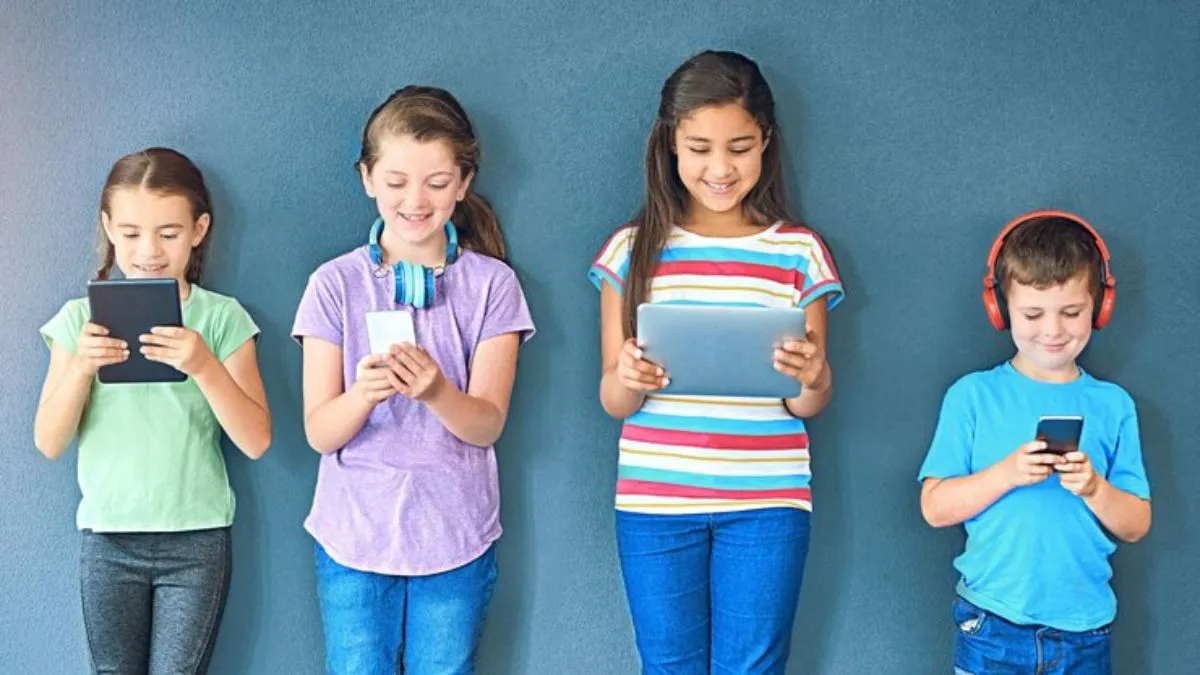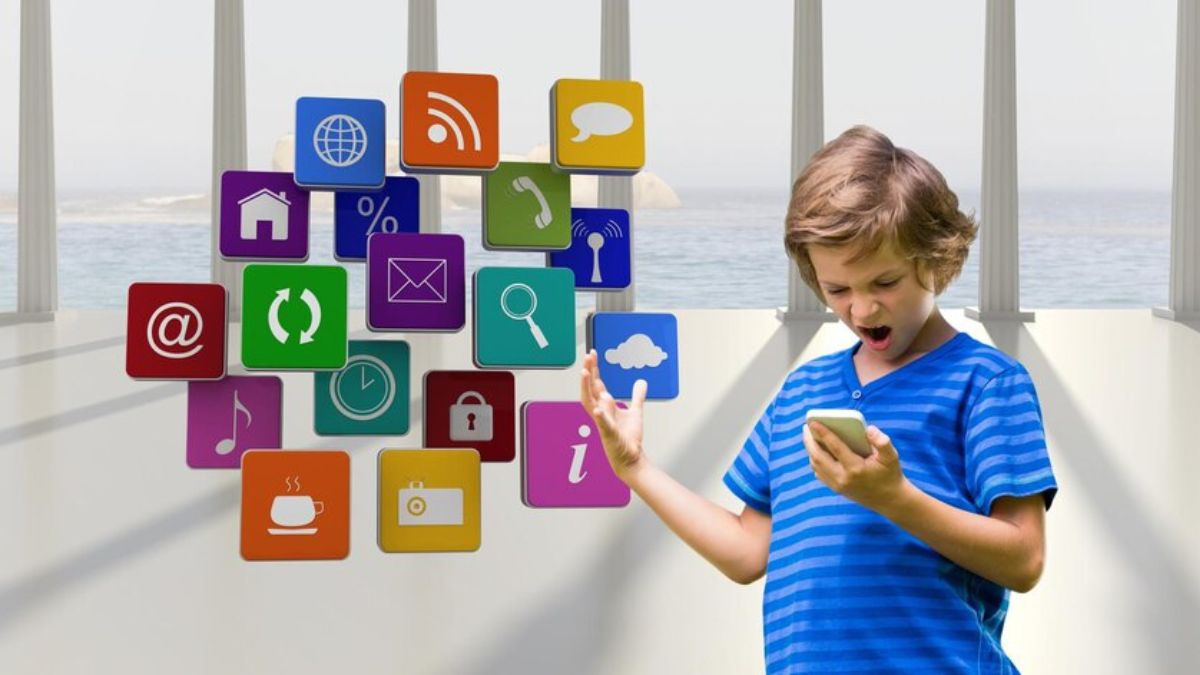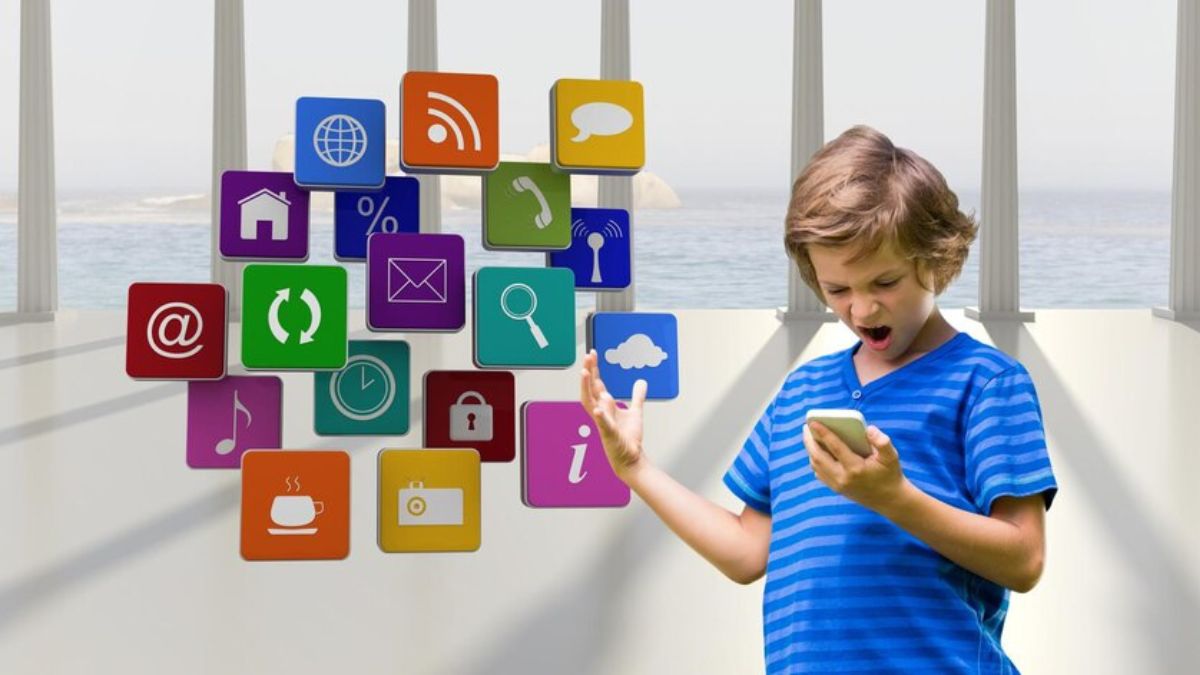
Social media has become more than just a platform to connect and socialise. It is growing into this virutal educational organisation that claims to offer extensive knowledge with or without expertise. It gets difficult to analyse what is worth attention and what is misleading. Especially for kids who consume content on social media, platforms like YouTube, TikTok, and Instagram have become educational tools for kids, offering everything from STEM tutorials to life skills. It is highly concerning the misinformation and the quality of content that kids are exposed to. If you also have kids who refer to social media for educational purposes, Dr. Michelle Shah, Lifestyle Medicine Pediatrician and Preventive Care and Holistic Health for Kids shares pros and cons of kids learning through social media. Keep reading as this can be an eye-opener for all of us.
Table of Content:-
How have social media platforms become an educational tool for kids?
Social media platforms like YouTube and Instagram have revolutionised how children consume and engage with educational content, largely due to their dynamic, interactive and gamified nature.
Research in cognitive psychology suggests that short, visually stimulating content is more likely to capture and sustain a child’s attention compared to traditional learning methods. This aligns with the Dual Coding Theory, which posits that the combination of visual and verbal information enhances understanding and memory retention. Children are also more likely to engage with content when it is delivered by relatable creators or influencers, which explains why kids resonate with educators or content creators who present information in an accessible, relatable manner.
Moreover, social media transcends geographical and cultural boundaries, providing children with exposure to global perspectives and resources they may not otherwise access. For example, a child in rural India can learn coding or physics from a creator in Silicon Valley, democratising education in unprecedented ways.
In addition to social media, we must consider the transformative role of artificial intelligence (AI) in education. AI tools like ChatGPT have introduced personalised learning opportunities, functioning almost as virtual teaching assistants. Research has shown that adaptive learning technologies powered by AI can improve comprehension by tailoring explanations and problem-solving methods to the individual learner’s needs. These platforms can also provide immediate feedback, enabling iterative learning and fostering curiosity.
However, these advancements also highlight the importance of guiding children in critically evaluating digital content and ensuring that they use these tools in developmentally appropriate ways.
Is social media learning safe for kids?
Dr. Michelle Shah answers, “Platforms like YouTube Kids and educational channels provide accessible, engaging, and age-appropriate content, fostering creativity and digital literacy. However, risks such as exposure to inappropriate material, cyberbullying and data privacy concerns remain prominent. A 2022 report by Common Sense Media found that nearly 39% of children under 13 have encountered harmful content online, highlighting the need for robust safeguards.”
Also Read: Social Media Has Impact On Sleep Patterns

“To mitigate these risks, parents and educators must leverage parental controls, encourage the use of child-friendly platforms and teach digital literacy to help children critically evaluate online information. By combining these strategies, social media can be a safe and effective learning resource for children, promoting their growth in a rapidly digitising world,” she adds.
How can misinformation impact kids' learning?
Misinformation significantly impacts children’s learning by distorting their understanding of the world, hindering critical thinking, and potentially leading to harmful behaviours.
“Children, especially younger ones, are in a formative stage where they rely heavily on external sources to build their knowledge base. Exposure to inaccurate or misleading information can create confusion, conflict with validated knowledge, and instill misconceptions that may persist into adulthood. A 2021 study by Stanford University revealed that even teenagers struggle to discern credible sources from misinformation, making younger children even more vulnerable,” explains Dr. Michelle Shah.
The impact extends beyond academics. For example, misinformation about nutrition, exercise or mental health shared on social media can lead to unhealthy practices, such as fad diets or neglecting essential health habits. Similarly, exposure to biased or inaccurate historical or cultural narratives can reinforce stereotypes and hinder a child’s ability to develop an inclusive worldview. Psychologists emphasise that repeated exposure to misinformation can contribute to the illusory truth effect, where children begin to accept false information as accurate simply due to repetition.
Also Read: ‘Brain Rot’ Named Oxford Word Of The Year 2024: What It Means And Its Impact On Gen Z And Gen Alpha
The rise of algorithm-driven content on platforms further compounds the issue. Algorithms often prioritise sensationalism over accuracy, increasing the likelihood of exposure to misinformation. To combat this, fostering digital literacy in children is crucial. Teaching them how to evaluate sources, verify facts and question the reliability of information empowers them to navigate digital spaces more responsibly. Parental involvement and the use of trusted educational platforms also play a pivotal role in ensuring that the information children consume supports, rather than hinders, their learning.

Why is there a need to keep a tab on the quality of content kids are exposed to on social media?
Answering this, Dr. Michelle Shah quotes, “There is a critical need to monitor the quality of content children consume on social media because it directly influences their cognitive, emotional, and social development. Children are impressionable and often lack the ability to critically evaluate the accuracy or appropriateness of information. Low-quality or harmful content - such as material promoting violence, unhealthy behaviours, or unrealistic standards - can negatively shape their values, behaviours, and mental health. Research published in Pediatrics in 2022 found that excessive exposure to inappropriate content is associated with increased anxiety, aggression and lower self-esteem in children. Moreover, algorithms on social media platforms are designed to maximise engagement, often amplifying sensational or polarising material, which may not be developmentally suitable for children. Poor-quality content can also distract children from educational material and limit their ability to focus on meaningful learning. Conversely, curated high-quality content can enhance learning, foster creativity and support healthy social-emotional development.”
Also Read: Social Media And Its Effect On Mental Health
How can parents regulate and restrict social media usage for kids’ learning?
Parents can regulate and restrict social media usage for children’s learning by adopting a balanced approach that prioritises education and open communication over rigid enforcement. Setting clear boundaries around screen time is crucial, as research shows excessive social media use can disrupt attention spans, sleep, and emotional well-being. The American Academy of Pediatrics emphasises creating a family media plan to establish guidelines for when, where and how social media can be used, ensuring it supports learning and development.
Using platform-specific parental tools, such as Instagram’s Teen Supervision feature, can enhance safety while respecting a child’s independence. This feature allows parents to set time limits, monitor interactions, and receive activity updates, creating a safer digital environment. Directing children toward educational content and apps, co-viewing content and fostering critical thinking by discussing what they encounter online further enriches the experience.
However, educating children about the potential risks and benefits of social media is more impactful than enforcing strict rules. Open and honest conversations about the importance of balance, privacy and discernment help children make informed decisions independently. Research highlights that children are more likely to adopt safe and responsible online behaviours when they feel trusted and involved in the decision-making process.
Additionally, modelling healthy social media habits and emphasising offline activities, such as reading, hobbies, and family time, ensures a holistic approach to their development. By combining guidance, education, and open dialogue, parents can empower their children to navigate social media responsibly while maximising their learning potential.
Also watch this video
Read Next
Parenting With Purpose: Expert Explains Why Parenting Boys And Girls Requires Different Approaches
How we keep this article up to date:
We work with experts and keep a close eye on the latest in health and wellness. Whenever there is a new research or helpful information, we update our articles with accurate and useful advice.
Current Version